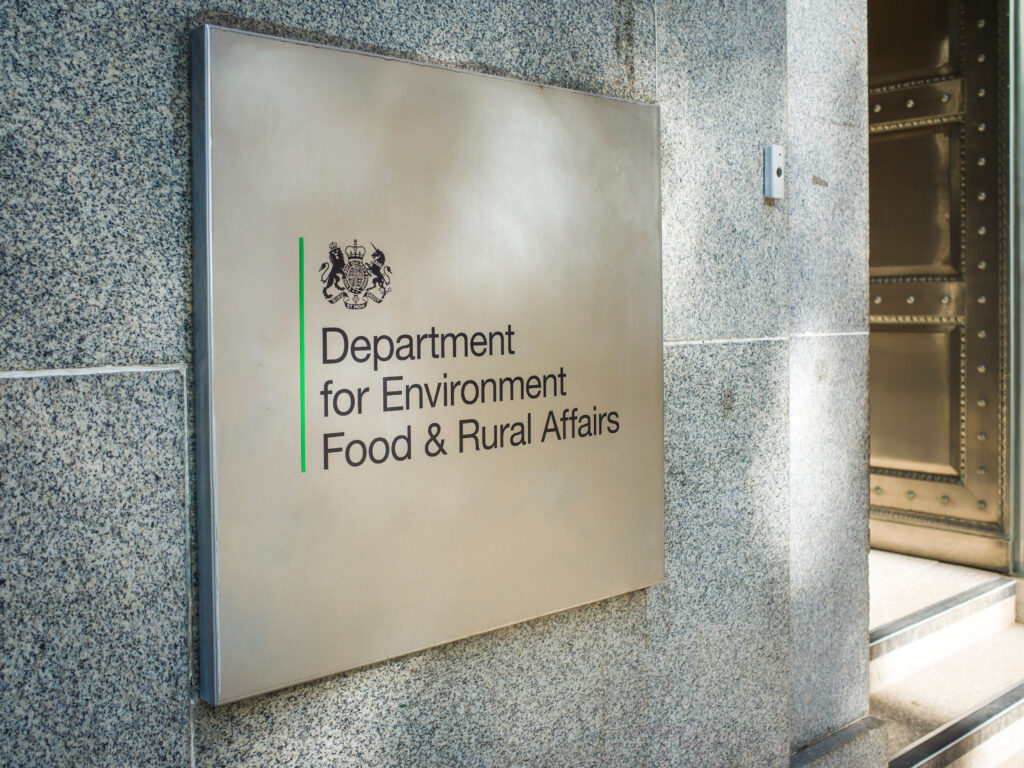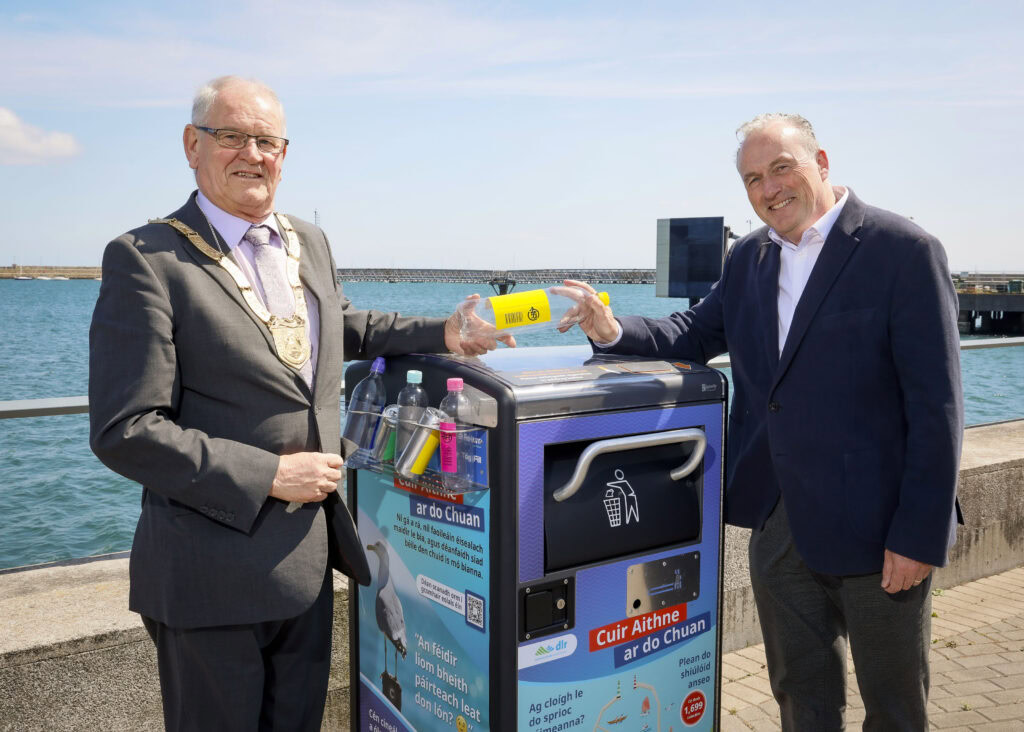The consultations’ outcomes promise to transform the way waste is managed in the UK.
Both consultations were launched on 24 March (see letsrecycle.com story). Stakeholders from across the sector, from charities to recyclers, have spent the last 10 weeks formulating their responses. A round-up of some responses can be seen below.
A third consultation on consistency in household and business recycling in England was launched after a delay on 7 May (see letsrecycle.com story). It closes on 4 July.
WRA fears proposals may reduce wood recycling
The Wood Recyclers’ Association (WRA) says it fears proposed government targets for waste wood packaging will lead to a reduction in the amount of wood available for reuse and recycling in the UK.
The WRA has written a joint letter to Defra with the Wood Panel Industries Federation (WPIF) outlining their combined concerns about proposals in the EPR consultation. Both organisations have officially responded to the consultation and have written the letter in addition to their submissions.

The trade organisations say the consultation proposes “low” recycling targets for wood packaging which are not in line with the waste hierarchy. They fear the proposals will lead to waste wood which could have been reused or recycled ending up in Chapter IV compliant biomass boilers.
Richard Coulson, chair of the WRA, said: “We have been trying to get Defra to understand our genuine concerns over this issue for over a year now, but the proposals in the consultation remain the same, with low wood recycling targets for packaging wood.
“This will completely destroy a hierarchical system that is currently working perfectly well with PRNs and PERNs, ensuring all end users for waste wood get the quantities and qualities they need, and the UK’s packaging recycling rates remain high.”
Alistair Kerr, director general of the WPIF, said: “Without higher targets, we are concerned that if a ‘one size fits all’ model is adopted, wood will be adversely impacted by increased bureaucracy and cost but for no gain.”
British Glass claims DRS could hit glass recycling
Elsewhere, trade association British Glass raised “serious concerns” the proposed DRS will have a detrimental impact on closed loop glass recycling, increase carbon emissions and incentivise an increase in plastic consumption.
The association says it is concerned the government proposals do not include a recycling or remelt target as part of the DRS.

Without these targets in place, British Glass says, glass collected through a DRS will be used in aggregates in the construction industry rather than recycled into bottles and jars.
Phil Fenton, British Glass’s lead packaging and recycling adviser, said: “Recycling a tonne of glass into new bottles and jars saves 580kg of CO2 emissions, saving over 594,000 tonnes of CO2 in 2019. Alternatively, if recycled glass is used as aggregates, it actually produces more carbon.
“This is why we are so concerned that a DRS that crushes or compacts glass with no recycling target will be detrimental to bottle-to-bottle recycling and to the environment.”
British Glass also expressed concerns at the government’s proposal that glass collected through the DRS via reverse vending machines will compact glass into four, five or six pieces. The association believes it is impossible to control the number of parts glass can be broken into.
Mr Fenton said: “We already have a solution to improving glass recycling, and it’s at our doorsteps. A DRS will be damaging for glass recycling, it will be bad for the environment, and it will be expensive.
“We want to see more glass collected through improved household collections under the new extended producer responsibility scheme, enhanced by consistent collections.”
Van Danzig hails sector engagement with EPR
Paul Van Danzig, policy director at compliance specialist Wastepack, told letsrecycle.com that the consultation on EPR seemed “one of the few” where “pretty much everyone” was engaged.
He welcomed the ambition of the proposals but warned some could prove to be “unworkable” in the suggested timescales.

Mr Van Danzig said: “We all recognise the need for change. Local authorities must be funded properly and a consistent approach to recycling which is less confusing to consumers across the whole of the UK is desirable.
“However, some of the proposals seem unworkable, anti-competitive, overly complex and incredibly expensive. The timescale to work within and have the new system fully implemented seems challenging at best or, as one respected commentator said, ‘totally bonkers’.
“The reality is that the new system has to work well, be fair to all stakeholders and deliver the desired outcomes without unintended consequences. We hope that Defra will listen to us all and then we can all work together to deliver a truly world class extended producer responsibility system.”
Recolight pleased with online marketplace proposals
Nigel Harvey, CEO of Recolight, said his compliance scheme’s EPR consultation response included significant comments relating to proposals for online marketplaces.
Recolight liked many of Defra’s suggestions for obligating online marketplaces for any filled packaging imported through their platform and sold direct to customers in the UK, but it wanted to see obligations extended to non-UK online marketplaces.

“To do otherwise would make it very easy for most online marketplaces to avoid their obligations, by using non-UK legal entities to contract with UK purchasers,” Mr Harvey told letsrecycle.com. “We also want to see the requirements extended to cover fulfilment houses.
“The line between online marketplace and fulfilment house is blurred, and the inclusion of fulfilment houses is necessary to avoid creating a ready loophole that can be exploited by tweaking contract terms.”
Mr Harvey said he understood the “pragmatic” inclusion of the use of protocols to substitute for actual packaging data submitted by online marketplaces. However, he added he would like to see such data modulated.
Mr Harvey said: “For example, the greater the proportion of estimated data used by the online marketplace, the higher the obligation to the online marketplace. That would provide a strong incentive for online marketplaces to submit actual data, a requirement that applies to all other producers.”
Clarity ‘concerned’ by EPR timetable
Martin Trigg-Knight, head of packaging at Clarity Environmental, said the compliance scheme had been working closely with its members to help them to understand the consultations.
He described the timetable for the EPR proposals as “concerning”.

Mr Trigg-Knight said: “We have encouraged as many businesses as possible to respond, given the potential impacts of proposed changes.
“Our own response communicates our support of the aims of reform, and of achieving a world-leading system of producer responsibility. But it also raises our concerns around the current implementation timetable, which we feel could make achieving these aims harder and could also result in higher costs for producers”.
He added that some of the reproccessors Clarity works with had raised concerns about the “efficacy” of some of the proposed models.
“Amongst those we have spoken to, we have seen an overwhelming sense of concern across many sectors, about both timetable, speedy transition, and some of the models proposed.
“We hope that the consultation responses provide clear consensus among stakeholders of a will to drive forward with the ambitious goals EPR, DRS and consistency in collections set out, while having a holistic and realistic approach to the introduction.”









Subscribe for free